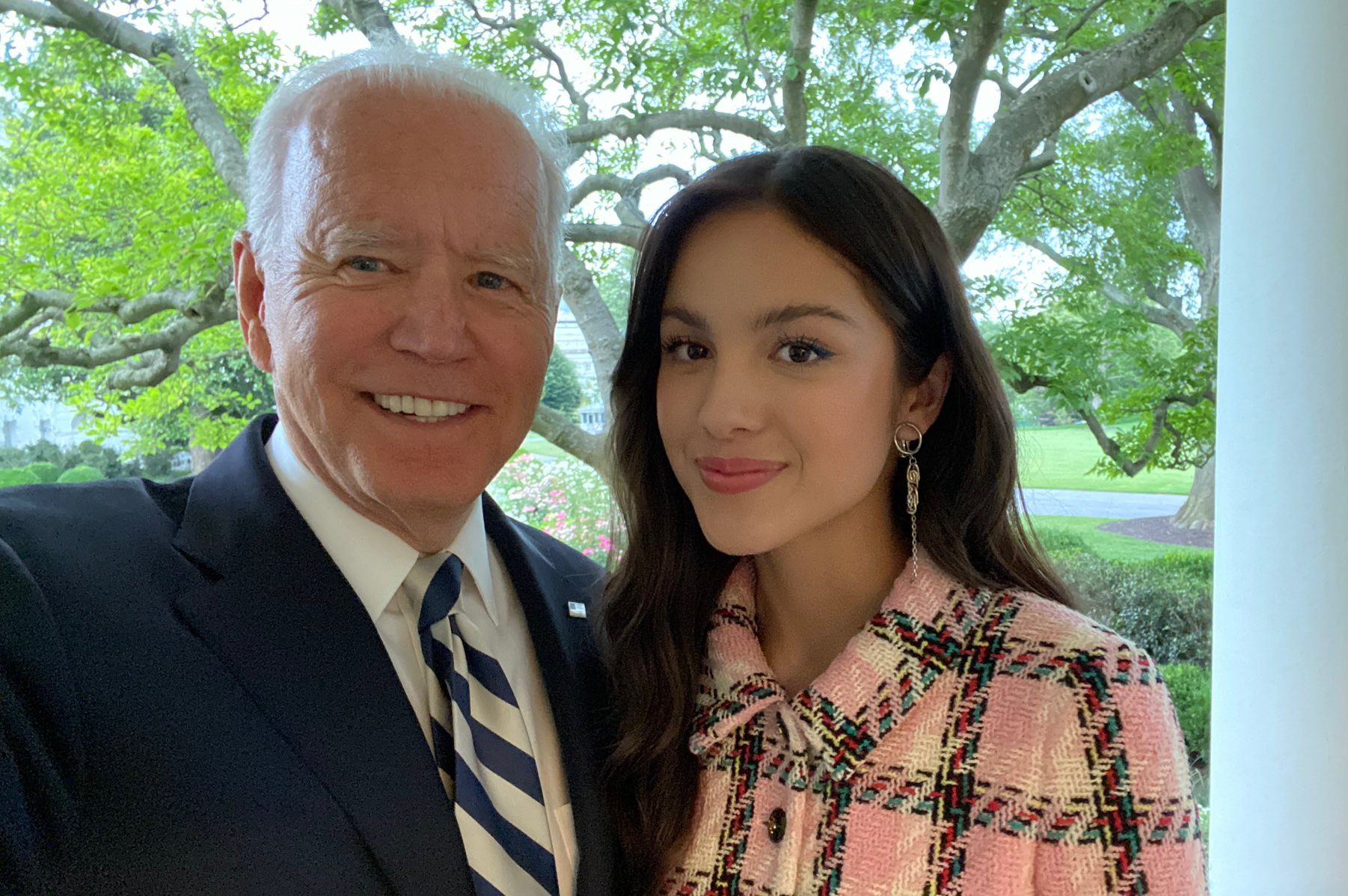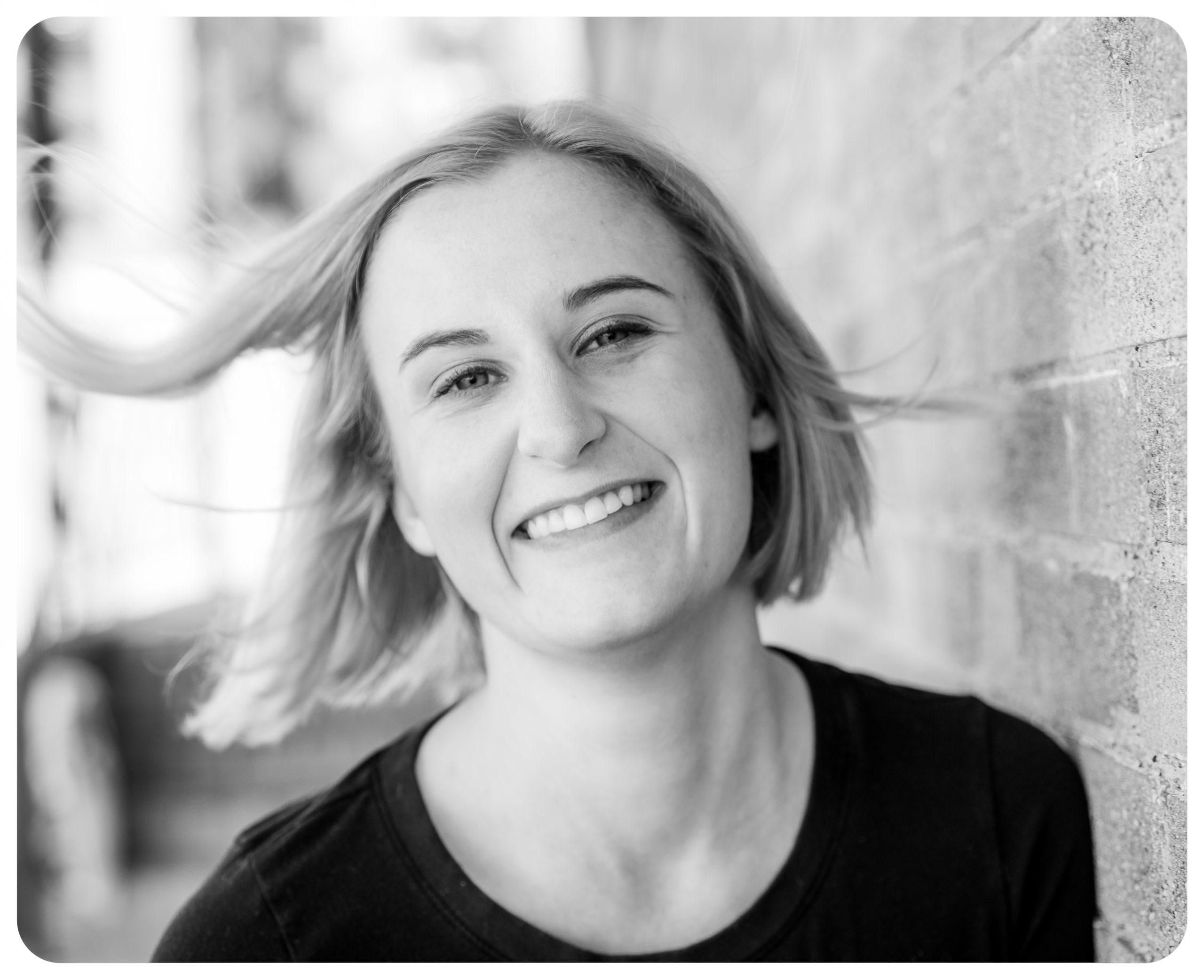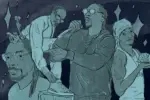As the COVID-19 delta variant sweeps across the U.S., leaving a trail of carnage in its wake, the Centers for Disease Control and Prevention has resorted to desperate measures in its attempt to convince Americans to get the vaccine. When the affirmations of public officials and doctors failed to assuage the fears of millennials and their Gen Z counterparts, the Biden administration took matters into their own hands by giving a platform to the only voices with sufficient sway to turn the tide of the pandemic:
Celebrities.
On July 14, President Biden invited pop sensation Olivia Rodrigo to the White House to promote the COVID-19 vaccine and help curb the spread of misinformation about the shot. It was the first spark of a desperation-fueled campaign to make vaccination the new vogue.
Less than half of Americans between the ages of 18 and 39 are fully vaccinated, compared to nearly two-thirds of Americans 40 and older. The stats become increasingly grim for children between the ages of 12 and 17, where little more than 40% are fully vaccinated against the virus.
had the honor of speaking with @POTUS today about the importance of young people getting vaccinated! check out https://t.co/r4TnB8gx3b to learn more about vaccines and to find a vaccination center near you! it’s easy, free, and so important!!! pic.twitter.com/rnM2UtRfeb
— Olivia Rodrigo (@oliviarodrigo) July 15, 2021
Initial hesitancy toward vaccination was attributed to misplaced skepticism regarding the legitimacy of the vaccine and the perceived threat of COVID-19 exposure. Right-wing groups spearheaded the opposition, spreading misinformation about the safety and efficacy of vaccination against the virus. Their obstinance undoubtedly played a key role in disseminating falsehoods; vaccination rates among registered Republicans remain at 52%, as opposed to 86% for their Democratic counterparts. If nothing else, this past year has proven to be an experiment in the politicization of health care.
Nevertheless, as the COVID-19 vaccine is approved for younger age groups, the disparities in vaccination rates due to age make themselves more apparent. Biden’s support base is skewed toward younger voters; indeed, 59% of voters between the ages of 18 and 29 voted blue in the 2020 election year.
There is a myriad of motivations for resisting vaccination, each with varying levels of legitimacy, but one prevails among this demographic: The stakes simply aren’t as high. Older Americans are more susceptible to severe symptoms or even death at the hands of COVID-19. Younger people, on average, face significantly lower mortality risks. Despite their misgivings, older citizens are forced to prioritize survival over comfort.
Thanks for stopping by, Olivia, and for using your voice to urge young people to get vaccinated. If we all do our part and get the COVID-19 vaccine, we can defeat this virus once and for all. Let’s do this. pic.twitter.com/ovn12CUjLu
— President Biden (@POTUS) July 15, 2021
The CDC, however, refuses to back down in its campaign to convert vaccine skeptics. Rodrigo’s visit to the White House catalyzed a widespread recruitment campaign of influencers from social media platforms across the board. TikTok creators, Twitch streamers and YouTubers have answered the call, asserting their confidence in the vaccine and urging fans to join them in halting the spread of COVID-19.
The recruitment process is underway on both a local and national level, and it’s not merely headliners like Rodrigo leading the charge. State and local governments are offering up to $1,000 a month to “micro-influencers” willing to voice their support for the national vaccination campaign. It’s a brilliantly strategic move, drawing upon the tactical advantages of niche marketing. While stars such as Rodrigo hold enormous sway, their influence stops at their fandom. An intimate, widely dispersed network of vaccine advocates allows for a personalized message to Americans of varying backgrounds with differing qualms about vaccination.
It’s a tried and true method whose origins date back to the likes of Catherine the Great and the first smallpox vaccine. Notwithstanding, the efficacy of celebrity endorsements in reference to health advice is questionable at best. People tend to trust close friends, family and local authorities over the inaccessible recommendations of sparkling strangers.
However, the dynasty of the influencer is upon us, and they inhabit a peculiar sphere somewhere between the personal and the public. Gen Z specifically has self-curated a digital community through which the tightly-knit influencer-fan dynamic may flourish. The multiplicity of influencers and the visibility that these mediums grant them allows for a more personalized content viewing experience. Niche interest groups and demographics are able to patronize the content creators they prefer, solidifying a more intimate relationship between an influencer and their followers.
Widespread distrust of politicians — and even medical experts — has contributed significantly to national skepticism toward public health recommendations. It appears that their battle has proved unfruitful, and it’s time for the influencers to take up the fight.
It’s a risky move on the part of the Biden administration, but they are faced with few other choices. Despite finally reaching the 70% vaccination rate among adults, COVID-19 cases are surging faster than the CDC can keep up with. Due to the spread of the highly contagious delta variant, cases have increased 142% in the past 14 days.
College campuses across the country are now requiring vaccination for all students, and President Biden announced last Thursday that all federal employees would be required to either get vaccinated or submit to mandatory COVID-19 testing. Vaccine mandates are becoming more commonplace in the private sector as well. As a last-ditch effort, some states have even begun offering a small stipend to satiate the skeptics. New York City Mayor Bill de Blasio has spearheaded the initiative, and the metropolis will begin paying $100 to people who get vaccinated at a city-run vaccination site.
The past months have proven to be an exercise in desperation, and it would appear that public officials are grasping at straws in an attempt to quell the fears of the anti-vax mob. While recruiting well-meaning household names is a step in the right direction, it may prove insufficient in the long run. It’s indicative of an overall lack of trust in public officials, which may ultimately prove deadly.
What happens when Twitch streamers and makeup gurus take up the yoke of implementing public policy? If national vaccine mandates continue to be an issue of political deadlock, we may reckon with a world in which we are forced to answer that question.

















